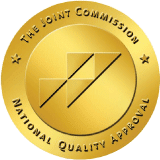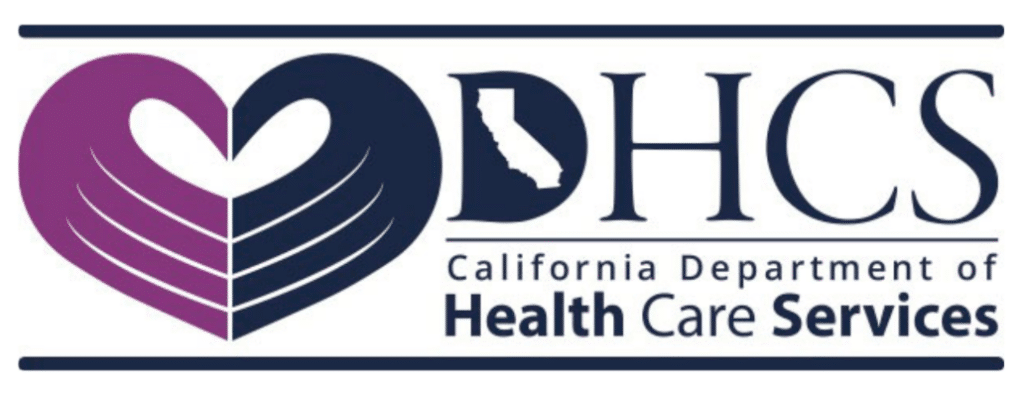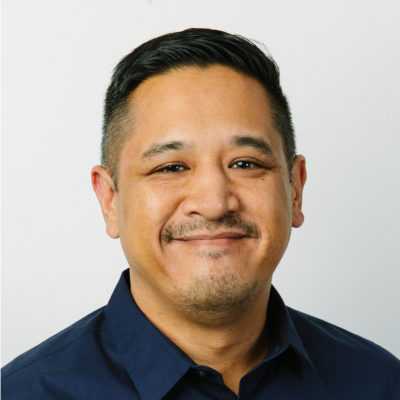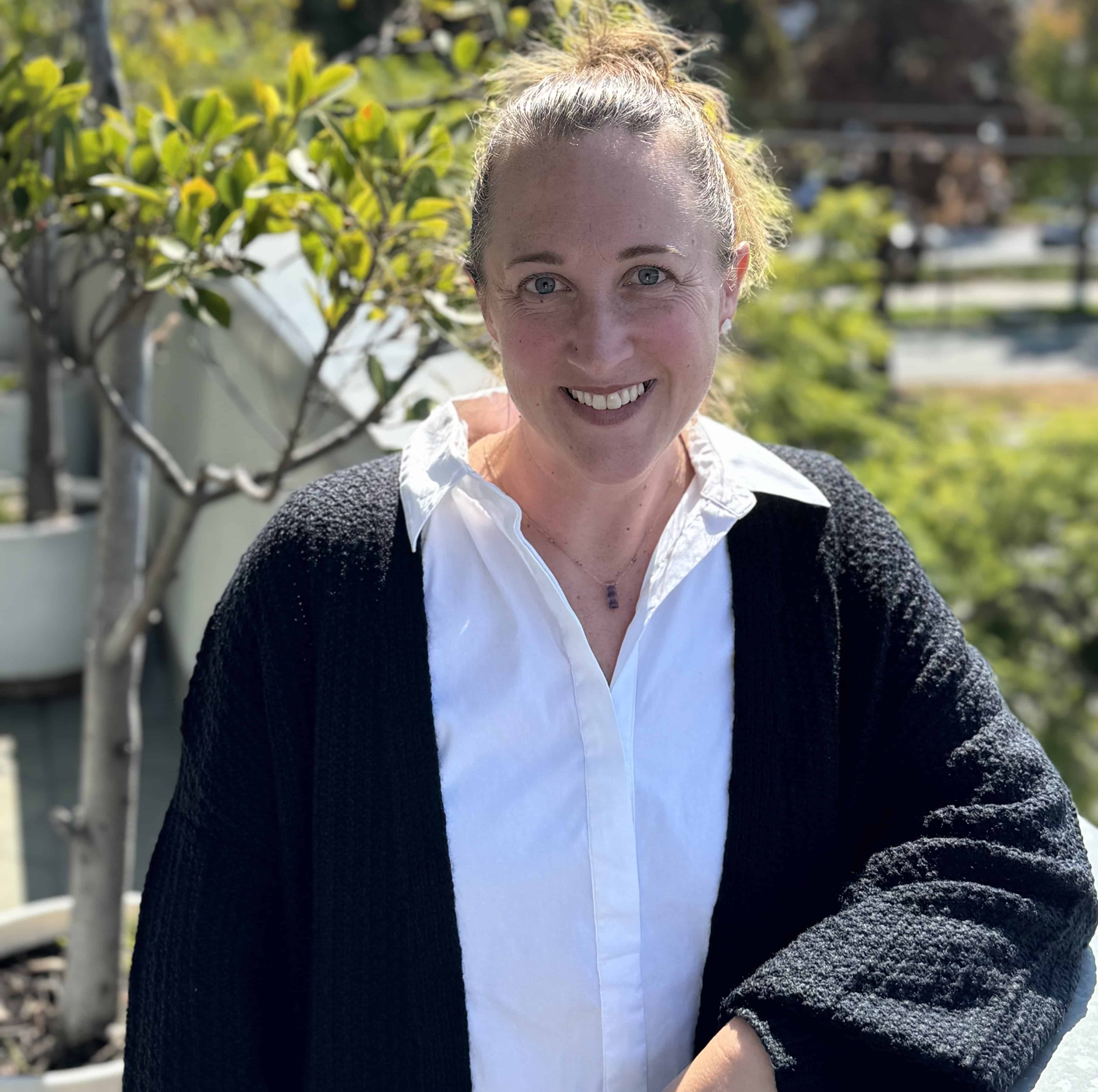Opioid Addiction Treatment Center in Los Angeles
Thrive Treatment’s dedicated substance abuse treatment center in Los Angeles offers comprehensive opioid addiction treatment with treatment plans ranging from detoxification and inpatient care to outpatient treatment and aftercare programs. From helping you take your first step toward an opioid-free life to building sustainable behavioral health and individualized treatment plans, we provide holistic drug addiction treatment services that tend to your individual needs and overall well-being for lasting recovery.
INSURANCE
We Work With Most Major Insurance
At Thrive Treatment℠ we accept most private insurance plans and we are in network with Cigna, Optum, First Health, and Anthem Blue Cross. Additional payment options are available so don’t hesitate to give us a call so we can get you the help that you need.
Change Your Life with a Single Call
1-855-232-1334












Why Choose Our Opioid Addiction Treatment Center in Los Angeles?
Thrive Treatment has been serving Los Angeles in overcoming opioid addiction, mental health disorders, and more by providing comprehensive care, holistic treatment options, community, and support to those ready to take their first step toward a sober life. Addiction is a destructive disease that affects all aspects of daily life. Thrive Treatment takes an equally comprehensive approach to your treatment program, blending evidence-based treatment with holistic healing options across the entire continuum of care, meeting you where you are in your recovery journey for long-term sober change.
Our dedicated care can support your healing from detox and inpatient treatment programs to our intensive outpatient program (IOP) and outpatient support. Thrive Treatment’s rehab center also works closely with The Last House, a dedicated sober living community, to support your transition to a fulfilling opioid-free life.
The Admissions Process at Thrive
We make getting help easy at Thrive Treatment.
Our caring and compassionate admissions coordinators are standing by ready to help you find the treatment that works best for you. Whether you come to our program or not, we will make sure you find the treatment options that work for you on a personal level.
We are Ready to Help 24/7
1-855-232-1334
Step 1: Reach Out
Reach out and contact the caring and experienced admissions coordinators at Thrive Treatment℠ to speak to someone who can help and who understands what you're going through.
Step 2: Assessment
Once we know your situation, we will do a pre-assessment, which is learning more about your history and issues to help us determine the best treatment options for you.
Step 3: Schedule Intake
Once we determine that Thrive Treatment℠ is the best program for you, we will schedule your initial intake appointment. During your intake, we will dig deeper to hand-craft a treatment plan based on your needs.
Step 4: Treatment Begins
Once you have completed intake, the work begins. You will be immersed in our integrative, multifaceted treatment program designed to treat the root causes of substance abuse & mental health.
Step 3: Schedule Intake
Once we determine that Thrive Treatment℠ is the best program for you, we will schedule your initial intake appointment. During your intake, we will dig deeper to hand-craft a treatment plan based on your needs.
Step 4: Treatment Begins
Once you have completed intake, the work begins. You will be immersed in our integrative, multifaceted treatment program designed to treat the root causes of substance abuse & mental health.
The Thrive Difference
Thrive Treatment’s addiction treatment center provides a wealth of unique opportunities, combining educated, compassionate options with personalized care to support your journey overcoming substance use disorder (SUD). This includes:
- Individualized case management
- Community and alumni support
- Family involvement
- Holistic, trauma-informed approach
Our opioid addiction treatment programs can also be built to address your unique needs, including supporting your healing from opioid addiction while addressing mental health disorders. With professional mental health treatment and dual diagnosis treatment, or even addressing multiple addictions at once, such as opioid addiction and alcohol addiction, our highly trained professionals are ready to work with you to find your best approach to lasting change.
Certifications & Accreditations
Levels of Care for Opioid Addiction
Overcoming addiction is a process, and there is no “quick fix” to the challenges of opioid addiction. Your recovery will take time and effort, with hurdles along the way. Thrive Treatment is available to help you or your loved one navigate each level of care for effective and sustainable healing from opioid addiction, as well as support you as you transition to new levels of care as you successfully reach your goals and milestones.
Detox Programs: Safely Managing Drug Withdrawal
The first step in any effective addiction recovery journey is detox. This is where you cease the use of opioids and expel any traces of these substances from your body. It is a difficult process, and this is when withdrawal symptoms can be at their most intense. Aches and pains, insomnia, anxiety, depression, and more are all common and challenging to your sobriety, making relapse common during this time when attempting to detox without support.
Thrive Treatment offers comprehensive care during our detox programs, providing emotional support and medical supervision to manage withdrawal symptoms, emotional challenges, and more. We also utilize medication-assisted treatment (MAT) to address specific symptoms of opioid withdrawal to empower you to navigate this time effectively.
These programs last about two weeks as you begin your sober journey, overcoming physical challenges, mental health challenges, and more while setting goals for your opioid-free life. This time is also personalized to your unique needs and experiences, ensuring that you are committed to your healing and progress from your very first step into treatment.
PHP (Partial Hospitalization Program): Intensive Day Treatment
Thrive Treatment‘s dedicated PHP is designed to be a stepping stone between your residential treatment and outpatient care. These programs meet five days a week, for about six hours each session, to help you address new challenges that arise and continue to engage with a community of sober peers and professionals to build a sense of belonging in your sober journey.
Our PHP is a blend of proven, evidence-based care with experiential therapies and holistic healing options, empowering you to address the stresses of daily life outside the treatment facility while still benefiting from professional support. These programs also help you balance newfound freedoms and responsibilities in sobriety while exploring a daily structure for a successful transition to your own sober daily life.
Outpatient Programs in Los Angeles: Flexibility and Support
Graduating from a detox, residential, or PHP program is an amazing accomplishment, but it is not the end of your opioid recovery journey. Rather, new stresses can arise at any time. Maintaining your sobriety from opioids takes continued refinement of dedicated coping strategies. Our outpatient programs are designed to help you at any stage of your recovery, meeting twice a week to provide continued support, guidance, accountability, and camaraderie.
Flexibility in meeting times also means you can always benefit from Thrive Treatment’s professional support even while tending to daily responsibilities, professional life, and more, further balancing your sober life with personal goals and responsibilities for a truly transformed sober life.
Sober Living in Southern California
Thrive Treatment works alongside The Last House, a dedicated sober living community available to help you establish your daily sober life while engaging in a supportive and effective recovery community. Talking to a professional about your needs and goals can help you determine if The Last House is the right fit for your continued healing journey after detox and treatment, helping you further balance personal goals with sustainable sober support.
In-Person
Virtual Telemedicine
Overcome Opioid Addiction Today, Contact Us - We Can Help
ADDICTIONS
Addictions We Treat
ESCAPE
The Impact of the Opioid Epidemic in Southern California
Opioids can be devastating to the health of an individual while also being a destructive force for entire families and communities. The opioid epidemic continues to affect millions across the country, with an estimated 2.7 million people living with opioid addiction. Overprescription of opioids led to widespread addiction and an increase in opioid use disorder, with many of those prescribed these addictive drugs transitioning to street-level opioids or illicit options when their prescription runs out, bringing new risks and dangers, including increasing the risk of overdose.
Nobody is immune to any form of addiction, especially when opioids are involved. The effects of the opioid epidemic in Southern California continue to affect thousands of families across the state. In 2021 alone, there were over 10,000 drug overdose deaths across the state, with about 65% of these involving opioids, especially dangerous and potent substances like fentanyl. This is possible whether it was being taken deliberately or the drug was unknowingly cut into other substances, including other opioids or even drugs like marijuana. Recognizing potential signs of opioid use and addiction is paramount to taking action and addressing OUD, as well as taking your first step into an effective, dedicated opioid treatment program.
SUPPORT
When to Seek Help for Opioid Addiction
Signs You'd Benefit From Drug Rehab
Recognizing the signs and symptoms of opioid addiction is the first step in finding help for overcoming substance abuse and engaging in an effective treatment program at Thrive Treatment or your local facility. Some of the most common signs of opioid use include:
- Mood swings
- Anxiety
- Depression
- Paranoia
- Being easily frustrated, agitated, or angered
- Memory loss or difficulty focusing
Physical and Behavioral Indicators of Opioid Use Disorder
OUD also profoundly impacts the body. Sudden weight changes, especially weight loss, fatigue, pinpoint pupils, gastrointestinal issues, nausea, vomiting, and more, are all common in those living with an addiction to opioids. Those injecting opioids can also have physical signs of use in “track marks” or small puncture wounds at injection sites that leave redness, scabs, and bruising. Unsafe and unsanitary drug use can also lead to infection, in addition to a compromised immune system, making these physical effects of opioids more difficult to overcome.
Likewise, you don’t necessarily have to actively see a loved one using opioids to find signs of opioid use, as the use of these drugs can also bring a myriad of behavioral changes. These can include:
- Increased secretive behavior and lifestyle, such as locking doors or inconsistent schedules
- Calling out from work, school, or social functions
- Intense denial when asked about drug use, including defensiveness or anger when the subject is brought up, even without being accused
- Compromised self-care and hygiene routines
- Disinterest in previous hobbies
- Inability or unwillingness to tend to personal responsibilities
- Sudden financial insecurity, coupled with signs of stealing or asking for money or loans
These can all indicate a preoccupation with finding and using opioids. Those living with prescription opioid addiction can also engage in “doctor shopping.” This is going to multiple doctors in an attempt to procure multiple prescriptions. An individual may have multiple prescriptions or go through prescriptions faster than expected or directed, indicating an unhealthy relationship with opioids.
Understanding Physical Dependence vs. Addiction
While those living with opioid addiction may commonly exhibit both physical dependence and signs of addiction, there is a key difference between the two. Physical dependence occurs when a person’s body becomes accustomed to the use of an addictive substance like opioids. The body may become reliant on these substances to feel “normal,” which can cause a person to experience withdrawal symptoms when stopping the use of opioids.
Addiction, however, is a mental health condition where the use of drugs impacts a person’s brain chemistry, commonly by hijacking the brain’s dopamine receptors and reward system. This is the part of OUD that brings intense cravings, mood swings, urges, and compulsive use of opioids despite having experienced negative consequences of drug use in the past or despite the concern of loved ones and family members.
Addressing both the physical and mental side of OUD is necessary for effective change, making the trained professionals and dedicated opioid addiction treatment program at Thrive Treatment an instrumental resource in sustainable change.
Opioid Addiction Treatment Program Features
Medication-Assisted Treatment (MAT) for Opioid Addiction
Not all recovery journeys will necessarily involve medication. However, for situations where withdrawal symptoms and mental health disorders are more severe, medication under the direction of a medical professional at Thrive Treatment can help alleviate some symptoms and challenges associated with opioid addiction and withdrawal.
While medication can be a great tool for supporting your recovery efforts, it is not a replacement for your own daily effort and dedication or for other coping strategies and therapy. Using medication to address specific symptoms and challenges throughout opioid recovery while working with professionals can create an effective, holistic approach to change while promoting long-term sobriety alongside other proven therapies.
Effective MAT to Support Long-Term Sobriety
While it is common to still experience urges and cravings at any stage of recovery, even as a sober alumnus, MAT can be instrumental in helping you maintain your hard-earned sobriety. During detox, the use of medication to address opioid withdrawal symptoms can help you navigate this difficult time more effectively while exploring personal needs and goals and transitioning to further levels of care. While medication cannot completely eliminate urges or the need for professional care, it can provide an additional layer of support to empower you to better engage in dedicated therapies and individual and group programs throughout your recovery.
Likewise, medication to address mental health needs can also help reduce triggering events. Anxiety, depression, and more can all be closely tied to the use of opioids as a coping strategy. Working with both mental health professionals at Thrive Treatment and medication to address particular needs can provide a robust approach to your sustainable healing journey.
We also blend proven evidence-based treatment strategies like cognitive-behavioral therapy (CBT), dialectical behavior therapy (DBT), acceptance and commitment therapy (ACT), and much more for a comprehensive approach to understanding stress, its impact on your mental health and behavior, and providing you with the skills necessary to overcome these stressful events in your opioid-free life.
How MAT Alleviates Pain and Drug Cravings
The use of medications like methadone, buprenorphine, Suboxone, and naltrexone in MAT can be crucial in supporting your healing journey. These can work by either partially or fully blocking the opioid receptors in the brain, helping to reduce cravings. Medications like naltrexone can completely block the effects of opioids, preventing the high and discouraging opioid use.
MAT can also help to alleviate pains associated with opioid use or chronic pain. For some, chronic pain can be tied to the use of opioids, particularly prescription opioids, with these pains being triggering and stressful for those pursuing a sober future. Mitigating pain and cravings can empower you to focus wholly on your personal development and practice coping strategies, engage with group therapy and experiential or holistic therapies, and make the most of each day at Thrive Treatment.
Managing Relapse and Building Resilience
Maintaining your sobriety from opioids takes effort. However, your time at Thrive Treatment is spent not just addressing the immediate effects of opioid addiction but also building the skills and strategies necessary to manage a truly sober life. We work with you to create a relapse prevention strategy filled with personal coping strategies, communication skills, mindfulness practices, and holistic healing opportunities. Managing relapse also incorporates your personal support system, from the community at Thrive Treatment or The Last House to working with your family and loved ones in our family program to identify signs of potential relapse and engage in comprehensive change at home.
Our relapse prevention strategies also address challenges beyond opioid use, addressing mental health needs, other drugs, or even incorporating alcohol rehab to facilitate a sustainable sober future.
Building resilience in recovery is also a journey. Emotional resilience is the ability to “bounce back” from stressful events and challenges. There will be challenges along the way, and new stresses and challenges may arise at any point in your healing journey. Having the strategies to acknowledge stress, process it safely, and release this stress is crucial to prevent relapse and maintain a healthy emotional state. Mindfulness, self-care, communication, and problem-solving skills can all be instrumental in building resilience and maintaining your hard-earned sobriety.
Strategies for Coping With Stress
Finding the right collection of strategies for managing stress throughout your healing from opioid addiction is a personal journey. We are prepared to help you cope with stress in a variety of ways to find what works best for you. These strategies include:
- Breathing strategies
- Mindfulness techniques
- Self-care and experiential care options
- Art therapy
- Film therapy
- Physical exercise and wellness
- Dietary support
- Yoga
We also blend proven evidence-based treatment strategies like cognitive-behavioral therapy (CBT), dialectical behavior therapy (DBT), acceptance and commitment therapy (ACT), and much more for a comprehensive approach to understanding stress, its impact on your mental health and behavior, and providing you with the skills necessary to overcome these stressful events in your opioid-free life.
TESTIMONIALS
Stories of Hope & Healing
Great Program!
“Great program with friendly staff! I highly recommend you to check it out! They know what they are doing! Tanner R. is the man and provides great customer service! Talk to him and he will point you in the right direction.”
Miles S.
I am Grateful!
“I am grateful for the immediate attention I received from Matt at Thrive Treatment℠ center. He is sensitive and caring and he graciously spent time with me and my husband to help our family situation. In just a short amount of time he made a big difference and gave us hope. He definitely is passionate about helping people and gave us great perspective and advice.”
Laura B.
Top-Notch Program
“Thrive treatment is a top notch program with one of the best clinical teams in LA. When I have clients at Thrive, I know without a doubt they are receiving the authentic help that they desperately need. Thanks Clayton for the amazing program you have built!”
David B.
Great Program!
“Great program with friendly staff! I highly recommend you to check it out! They know what they are doing! Tanner R. is the man and provides great customer service! Talk to him and he will point you in the right direction.”
David F.
Boundlessly Grateful
"Thrive met my son where he was and worked to find the right mix of supports and interventions to help him create a path toward health and wellness. I am boundlessly grateful to the program and its staff. Not only does Thrive offer an array of helpful tools, but it has a staff that cares about the clients, meets them exactly where they are, and tailors treatment to their individual needs."
Lynn M.
Supportive & Informative
"Thrive treatment is a very supportive and informative IOP. I was in one of the sober livings that works with their service, the Last House, and found that in thrive treatment, I was helped not only to process my emotions as they came up, but also learned quite a lot about the different healthy coping mechanisms I could engage in to move forward without being self destructive."
Leo L.
Huge Asset in My Sobriety
"Thrive treatment was a huge asset to me in my sobriety. I will be forever grateful for the entire staff at Thrive. The facility is well furnished and in a great location that makes being there very comfortable. On top of that I felt as though the entire staff was very invested in my recovery."
Ryan S.
Our Team
Meet Our Team

RECOVER
Addressing Co-Occurring Disorders in Opioid Addiction Treatment
Co-occurring disorders are difficult to address. Overcoming both an opioid addiction and a mental health disorder like anxiety, depression, bipolar disorder, or even post-traumatic stress disorder (PTSD) is complicated, especially if a person turned to the use of opioids as a result of traumatic injury or events. Thrive Treatment offers holistic care, with dedicated mental health professionals ready to help you explore not just the effects of mental health disorders and addiction in your life but also how they can continue to inform each other in your journey.
There is never anybody who is beyond healing from mental health disorders or opioid addiction. Thrive Treatment is available to help you find the right combination of support, therapies, and community for your transformative healing, whether you are just beginning your healing journey or looking to find a new way to approach these challenges for a fulfilling, sustainable, and healthy daily life.
Begin Your Journey Today
Thrive Treatment is prepared to meet you where you are, creating a plan to help you take your first step toward an opioid-free life with confidence. We work with most insurance and private insurance plans, and help is just a single call away, whether you are looking to learn more about opioid addiction treatment for yourself or for more information on how to support a loved one as they begin their journey to healing.
CONTACT
Find Recovery Now
Overcoming opioid addiction takes a lot of effort, care, and support. We at Thrive Treatment are prepared to help you take your first step toward an opioid-free life in California. Learn how by calling us today at (855) 232-1334.
Get Immediate Assistance Now
1-855-232-1334








